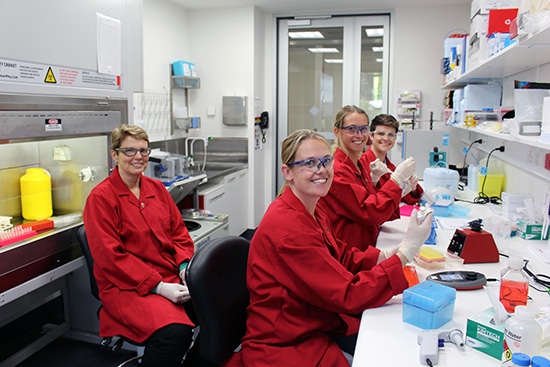
By Dr Vicki Maltby
MSRA and CIHR Post-doctoral Research Fellow
The University of Newcastle and HMRI
Our team is involved in a diverse spectrum of research in multiple sclerosis (MS), from basic science to clinical trials. Our current research focus is on investigating the role of non-genetic factors in MS, in particular epigenetics. The term “epigenetics” refers to regulations in gene expression, which do not involve changes to the DNA sequence itself. Our focus is examining the role of epigenetics in MS disease onset.
Using patient samples, we isolate immune cells from MS patients and healthy controls. In these samples, we look for differences in one particular type of epigenetic change, called “DNA methylation”. We have discovered significant changes in the DNA methylation profiles of MS patients compared to healthy controls and determined that the majority of these changes are clustered in the same genetic region that was identified as the main susceptibility locus, called the MHC locus.
This region of the genome or “locus” is enriched for genes involved in regulation of immune responses. As MS is an autoimmune disorder, we propose to further study the changes identified in this region and assess other, related epigenetic changes, to determine whether they may contribute to MS disease onset.
A better understanding of the epigenetic profiles of immune cells will provide new insight into the disease mechanisms underlying MS. Additionally, our study will identify epigenetic changes that could be used for predicting prognosis or as new targets for therapy.











